Hyundai i30 Wagon vs Mercedes EQB – Differences & prices compared
Compare performance, boot space, consumption and price in one view.
Find out now: which car is the better choice for you – Hyundai i30 Wagon or Mercedes EQB?
The Hyundai i30 Wagon (Estate) comes with a Petrol or Petrol MHEV engine and Manuel or Automatic transmission. In comparison, the Mercedes EQB (SUV) features a Electric engine with Automatic transmission.
When it comes to boot capacity, the Hyundai i30 Wagon offers 602 L, while the Mercedes EQB provides 495 L – depending on how much space you need. If you’re looking for more power, decide whether the 140 HP of the Hyundai i30 Wagon or the 292 HP of the Mercedes EQB suits your needs better.
In terms of consumption, the values are 5.70 L per 100 km for the Hyundai i30 Wagon, and 15.20 kWh for the Mercedes EQB.
Price-wise, the Hyundai i30 Wagon starts at 24800 £, while the Mercedes EQB is available from 45900 £. Compare all the details and find out which model fits your lifestyle best!
Hyundai i30 Wagon
The Hyundai i30 Wagon offers a blend of practicality and style, making it a popular choice for families and those in need of extra space. Its sleek exterior and comfortable interior provide a pleasant driving experience, while advanced safety features ensure peace of mind on the road. The i30 Wagon stands out with its impressive fuel efficiency and reliability, catering to both urban and rural lifestyles.
details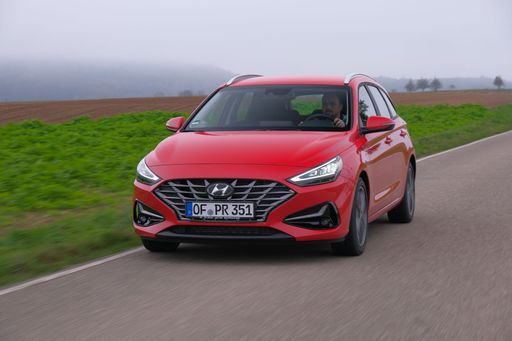 @ hyundai.news
@ hyundai.news
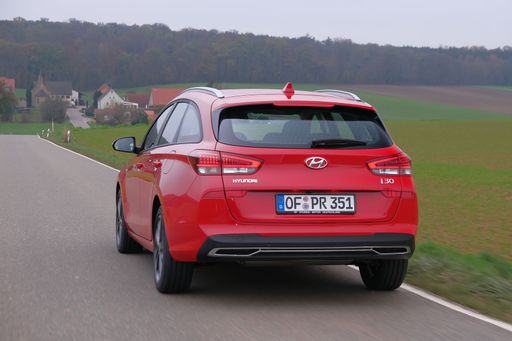 @ hyundai.news
@ hyundai.news
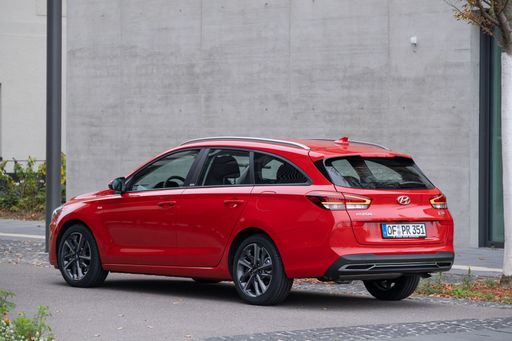 @ hyundai.news
@ hyundai.news
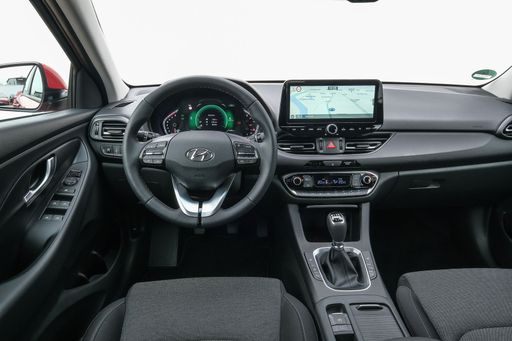 @ hyundai.news
@ hyundai.news
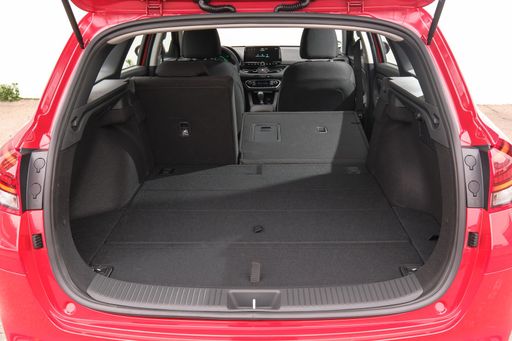 @ hyundai.news
@ hyundai.news
Mercedes EQB
The Mercedes-Benz EQB is an all-electric compact SUV that seamlessly blends practicality with modern luxury. Its sleek design and spacious interior make it an attractive option for families seeking both style and function. With advanced technology and impressive range capabilities, the EQB is a testament to Mercedes-Benz's commitment to sustainable mobility.
details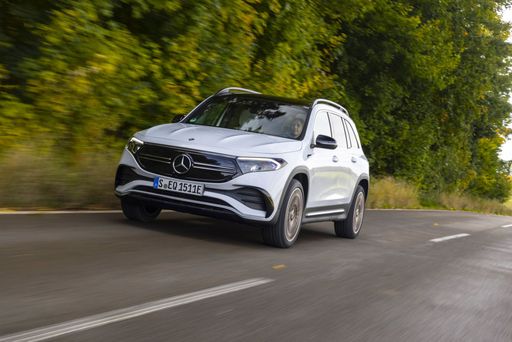 @ group-media.mercedes-benz.com
@ group-media.mercedes-benz.com
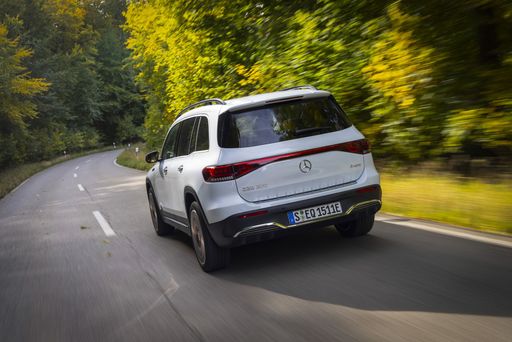 @ group-media.mercedes-benz.com
@ group-media.mercedes-benz.com
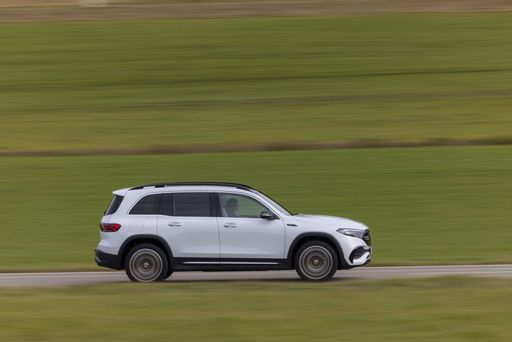 @ group-media.mercedes-benz.com
@ group-media.mercedes-benz.com
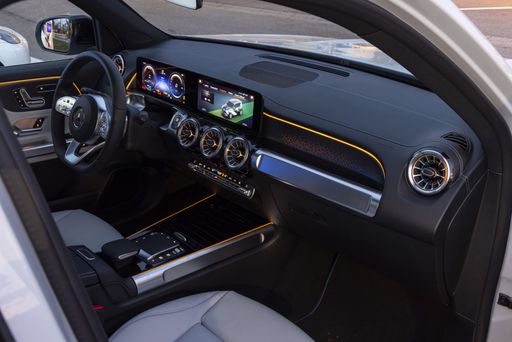 @ group-media.mercedes-benz.com
@ group-media.mercedes-benz.com
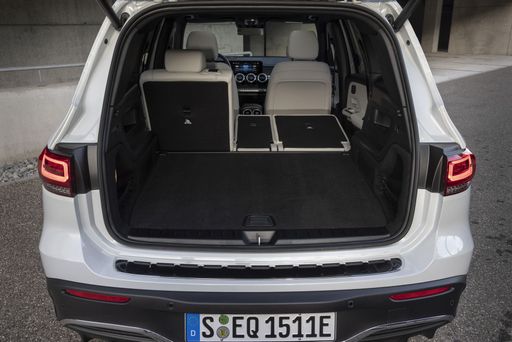 @ group-media.mercedes-benz.com
@ group-media.mercedes-benz.com

|

|
|
|
|
Costs and Consumption |
|
|---|---|
|
Price
24800 - 30100 £
|
Price
45900 - 58900 £
|
|
Consumption L/100km
5.7 - 6 L
|
Consumption L/100km
-
|
|
Consumption kWh/100km
-
|
Consumption kWh/100km
15.2 - 17.2 kWh
|
|
Electric Range
-
|
Electric Range
468 - 535 km
|
|
Battery Capacity
-
|
Battery Capacity
70.50 kWh
|
|
co2
130 - 136 g/km
|
co2
0 g/km
|
|
Fuel tank capacity
50 L
|
Fuel tank capacity
-
|
Dimensions and Body |
|
|---|---|
|
Body Type
Estate
|
Body Type
SUV
|
|
Seats
5
|
Seats
5
|
|
Doors
5
|
Doors
5
|
|
Curb weight
1316 - 1461 kg
|
Curb weight
2105 - 2170 kg
|
|
Trunk capacity
602 L
|
Trunk capacity
495 L
|
|
Length
4585 mm
|
Length
4684 mm
|
|
Width
1795 mm
|
Width
1834 mm
|
|
Height
1475 mm
|
Height
1654 - 1689 mm
|
|
Max trunk capacity
1650 L
|
Max trunk capacity
1710 L
|
|
Payload
439 - 524 kg
|
Payload
435 kg
|
Engine and Performance |
|
|---|---|
|
Engine Type
Petrol, Petrol MHEV
|
Engine Type
Electric
|
|
Transmission
Manuel, Automatic
|
Transmission
Automatic
|
|
Transmission Detail
Manual Gearbox, Dual-Clutch Automatic
|
Transmission Detail
Reduction Gearbox
|
|
Drive Type
Front-Wheel Drive
|
Drive Type
Front-Wheel Drive, All-Wheel Drive
|
|
Power HP
100 - 140 HP
|
Power HP
190 - 292 HP
|
|
Acceleration 0-100km/h
9.8 - 13.3 s
|
Acceleration 0-100km/h
6.2 - 8.9 s
|
|
Max Speed
178 - 197 km/h
|
Max Speed
160 km/h
|
|
Torque
172 - 253 Nm
|
Torque
385 - 520 Nm
|
|
Number of Cylinders
3 - 4
|
Number of Cylinders
-
|
|
Power kW
74 - 103 kW
|
Power kW
140 - 215 kW
|
|
Engine capacity
998 - 1482 cm3
|
Engine capacity
-
|
General |
|
|---|---|
|
Model Year
2024
|
Model Year
2024 - 2025
|
|
CO2 Efficiency Class
D, E
|
CO2 Efficiency Class
A
|
|
Brand
Hyundai
|
Brand
Mercedes-Benz
|
Hyundai i30 Wagon
Introducing the Hyundai i30 Wagon: A Perfect Blend of Performance and Practicality
The Hyundai i30 Kombi is a testament to the automaker's commitment to delivering high-quality vehicles that cater to a wide range of drivers. This versatile estate car combines sleek style, innovative technology, and efficient performance, making it an attractive option for those seeking a reliable family car or a spacious vehicle for everyday use.
Powerful Yet Efficient: Engine Options
The Hyundai i30 Wagon offers a selection of engine configurations, designed to balance power and efficiency seamlessly. You can choose from conventional petrol engines or the advanced 48V mild-hybrid technology for those looking to minimise their carbon footprint while enjoying an exhilarating drive.
The petrol engines provide a dynamic driving experience, while the mild-hybrid options incorporate a small electric motor to boost efficiency. Both engine types promise smooth, responsive performance, ensuring every drive is a pleasure.
Seamless Transmission Systems
With the i30 Wagon, Hyundai offers both manual and automatic transmission systems to cater to different driving preferences. The manual transmission provides direct control for enthusiasts who enjoy a more hands-on driving experience, while the automatic option is perfect for those prioritising convenience and comfort during their journeys.
Innovative Technology and Features
The interior of the Hyundai i30 Wagon is designed to offer maximum comfort and connectivity. Equipped with the latest infotainment system, drivers and passengers can enjoy access to a wide array of features, ensuring entertainment and connectivity on the go. The system is compatible with Apple CarPlay and Android Auto, providing seamless integration with your smartphone.
Safety technology is also at the forefront, with multiple driver-assistance features that enhance road safety, making the i30 Wagon a smart choice for families and safety-conscious drivers.
Spacious and Versatile Interior
Inside, the i30 Wagon boasts an impressive amount of space, with a boot capacity of 602 litres, easily accommodating the demands of a busy lifestyle. With comfortable seating for up to five passengers and flexible load space, it's perfect for long trips or daily commutes. Practicality is matched with attention to detail in design, making the interior both stylish and functional.
Pricing and Sustainability
The Hyundai i30 Wagon not only provides excellent value for money but also demonstrates a commitment to sustainability. With competitive pricing and efficient fuel consumption, it's an economical choice that doesn’t compromise on performance or quality. CO2 emissions are kept in check, making it an environmentally friendly option within this segment.
Conclusion: The Perfect Automotive Companion
The Hyundai i30 Wagon is an exceptional vehicle that strikes an ideal balance between innovation, style, and practicality. Whether you're navigating city streets or embarking on a countryside adventure, this car provides the reliability, comfort, and performance you require. It's more than just an estate car; it's your perfect automotive companion.
Mercedes EQB
Introducing the Mercedes-Benz EQB: A New Era in Electric SUVs
The Mercedes-Benz EQB is a striking testament to the innovative prowess of Mercedes-Benz in the realm of electric vehicles. As an SUV designed for the future, the EQB merges luxury with sustainability, offering a remarkable driving experience complemented by state-of-the-art technology.
Powerful Performance and Efficient Design
Under the bonnet, the EQB is powered by an electric motor that produces between 190 to 292 PS, translating to 140 to 215 kW. This powerful engine allows the EQB to achieve a 0-100 km/h acceleration in just 6.2 to 8.9 seconds, rivaling many other vehicles in its class.
Fuel efficiency remains at the forefront of the EQB's design, with a consumption rate ranging from 15.2 to 17.3 kWh per 100 km. This efficiency ensures the vehicle maintains an impressive electric range between 445 to 533 km per charge, giving drivers the confidence to embark on longer journeys without constant recharging.
Cutting-Edge Technological Innovations
The EQB is packed with innovations that make driving an intuitive and seamless experience. The vehicle boasts a state-of-the-art emissions rating of zero CO2 per km, proudly placing it in the A class of CO2 efficiency. The integrated automatic transmission, specifically the Reduktionsgetriebe, offers smooth transitions and enhances overall driving comfort.
Roomy Interior and Premium Features
Step inside the EQB to find a spacious and luxurious interior, capable of accommodating five passengers comfortably. With a luggage capacity of 495 litres, this SUV caters to both adventure and everyday needs. The EQB comes available in several exquisite lines, including AMG Line Advanced and Electric Art Advanced Plus, ensuring there's a version to match every style preference.
Safety and Reliability
Safety has always been a priority for Mercedes-Benz, and the EQB continues this legacy. With an all-wheel-drive option on certain models, enhanced traction and stability are provided across a variety of driving conditions. Furthermore, the EQB's substantial weight range from 2105 to 2170 kg adds to its robust and stable feel on the road.
Pricing and Ownership Costs
The price of the EQB starts at €53,514, and the top-end models can go up to €68,734. Mercedes-Benz offers several financing options to suit various budgets, with running costs calculated at approximately 47.4 to 55.9 cents per kilometre, making it an economically viable choice for the environmentally conscious driver.
The Mercedes-Benz EQB is more than just a vehicle; it represents a shift towards a more sustainable future, without compromising on luxury or performance. Whether you're navigating city streets or venturing into the countryside, the EQB is engineered to deliver an exceptional driving experience every time.
What drive types are available for the Hyundai i30 Wagon?
The Hyundai i30 Wagon is available as Front-Wheel Drive.
The prices and data displayed are estimates based on German list prices and may vary by country. This information is not legally binding.
